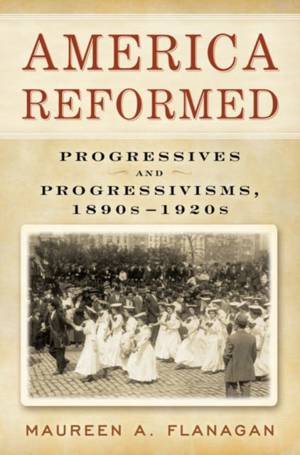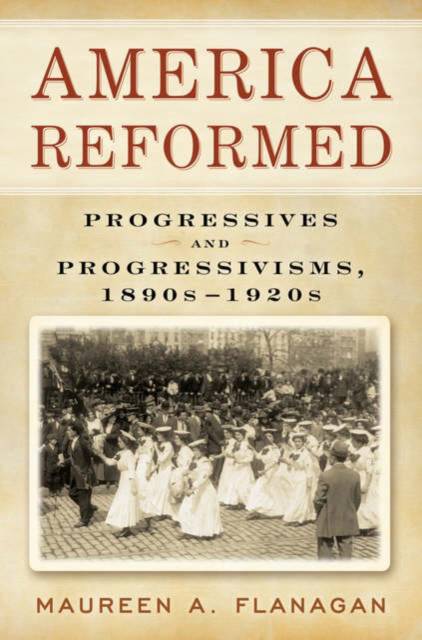
- Retrait gratuit dans votre magasin Club
- 7.000.000 titres dans notre catalogue
- Payer en toute sécurité
- Toujours un magasin près de chez vous
- Retrait gratuit dans votre magasin Club
- 7.000.0000 titres dans notre catalogue
- Payer en toute sécurité
- Toujours un magasin près de chez vous
America Reformed
Progressives and Progressivisms, 1890s-1920s
Maureen A Flanagan
Livre broché | Anglais
174,95 €
+ 349 points
Description
The Progressive Era, from the 1890s to the 1920s, was one of the most important periods in American social, political, and economic history. During this time, the United States saw a great change in the role of government, particularly in terms of its involvement in the regulation of business and industry. This era has often been characterized as the first period in which government power was increased for largely egalitarian reasons; however, many have argued the opposite case--that the legislation was designed by industry to serve its own purposes.
In America Reformed: Progressives and Progressivisms, 1890s-1920s, author Maureen A. Flanagan introduces progressivism less as a straightforward history of actual reforms than as a revision of the ways in which Americans organized themselves to confront the problems of their society. She examines how this reorganization in turn drew Americans into a new type of relationship with the federal government. Drawing on the most up-to-date scholarship, Flanagan explores what democracy meant to various citizens and emphasizes the "social justice" movement as an integral aspect of progressive reforms. Organized around four thematic lines of progressivism--political, social justice, economic, and foreign policy--the book analyzes the various ideas, actors, and movements that constituted the timeperiod. By incorporating coverage of how women, African Americans, and ethnic and working-class organizations participated in progressive reform movements, Flanagan reveals how the reform struggles of the period all revolved around defining the nature and purpose of U.S. democracy. Ideal for undergraduate courses in the U.S. Progressive Era and the Gilded Age/Progressive Era, America Reformed features documents, maps, and illustrations throughout, as well as anecdotes of historical events to introduce each chapter. The text also includes references to scholarly websites of original source material.
In America Reformed: Progressives and Progressivisms, 1890s-1920s, author Maureen A. Flanagan introduces progressivism less as a straightforward history of actual reforms than as a revision of the ways in which Americans organized themselves to confront the problems of their society. She examines how this reorganization in turn drew Americans into a new type of relationship with the federal government. Drawing on the most up-to-date scholarship, Flanagan explores what democracy meant to various citizens and emphasizes the "social justice" movement as an integral aspect of progressive reforms. Organized around four thematic lines of progressivism--political, social justice, economic, and foreign policy--the book analyzes the various ideas, actors, and movements that constituted the timeperiod. By incorporating coverage of how women, African Americans, and ethnic and working-class organizations participated in progressive reform movements, Flanagan reveals how the reform struggles of the period all revolved around defining the nature and purpose of U.S. democracy. Ideal for undergraduate courses in the U.S. Progressive Era and the Gilded Age/Progressive Era, America Reformed features documents, maps, and illustrations throughout, as well as anecdotes of historical events to introduce each chapter. The text also includes references to scholarly websites of original source material.
Spécifications
Parties prenantes
- Auteur(s) :
- Editeur:
Contenu
- Nombre de pages :
- 304
- Langue:
- Anglais
Caractéristiques
- EAN:
- 9780195172201
- Date de parution :
- 24-08-06
- Format:
- Livre broché
- Format numérique:
- Trade paperback (VS)
- Dimensions :
- 139 mm x 247 mm
- Poids :
- 426 g

Les avis
Nous publions uniquement les avis qui respectent les conditions requises. Consultez nos conditions pour les avis.






